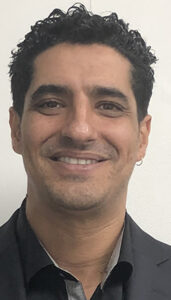By Shahar Masori

SAN DIEGO — I want to share some personal experiences and observations about the military’s role in Israel and the United States, and how it shapes society in these two countries.
Growing up in Israel, the military was always a big part of life. Most of us serve in the Israel Defense Forces (IDF) when we turn 18. It’s a rite of passage that brings people together. My own time in the IDF was eye-opening. I learned a lot about leadership, resilience, and the importance of unity. The military in Israel is existential. Surrounded by countries that are often hostile, our military is essential for our survival. This creates a society that is always alert and deeply connected through shared experiences of service.
In contrast, military service in the United States is voluntary, unless there’s a mandatory draft due to war. The US military is highly respected, but it operates on a different scale. The US military has a global reach, with bases all over the world. It’s about more than just defending borders; it’s about promoting democracy and maintaining global security. This difference was striking to me. In Israel, our military is focused on immediate defense; in the US, it’s about broader strategies and global presence.
One of the things that really stood out to me was how military service influences daily life and career paths. In Israel, the skills you gain in the IDF—like leadership, technical know-how, and problem-solving—are incredibly valuable in civilian life. Many of Israel’s top tech entrepreneurs started in military units like the famous Unit 8200. The sense of camaraderie and shared purpose stays with you, and what one did in the army also helps when applying for a job. The IDF’s integration into Israeli society means that soldiers are generally respected and supported, and the military service experience is a common bond that unites many Israelis.
In the US, military service builds skills and character too, but the transition to civilian life is a bit different. Often the decision to join the military is affected by family history—my dad was a soldier and so was my grandpa and so on. Veterans are respected and have access to various support programs, but there’s a clearer line between military and civilian roles, perhaps because it’s not mandatory. However, this respect hasn’t always been consistent. For instance, during the Vietnam War, many veterans returned home to a country that was deeply divided over the conflict. As a result, they were often treated poorly and lacked the support they needed, in stark contrast to the more integrated and respected role of the military in Israeli society.
The military-industrial complex in the US is huge, influencing the economy and politics in significant ways. For example, defense contractors like Lockheed Martin and Boeing wield considerable influence. Their interests can shape policy decisions, sometimes leading to substantial defense budgets. The development of new fighter jets or missile systems often involves massive government contracts that can influence political decisions. Technologies developed for the military often find their way into civilian use. GPS and the internet are great examples of military tech that have transformed civilian life.
While I was in the IDF, I had the opportunity to collaborate with US forces. It was fascinating to see how each military approached tasks. We in the IDF focused on rapid, adaptable responses to immediate threats, while the Americans had long-term strategic plans. This experience taught me a lot about the strengths of each approach and how much we could learn from each other.
Both countries face challenges related to their military roles. In the US, the vast military-industrial complex can lead to political and economic pressures. The psychological toll on veterans, including issues like PTSD, is a critical concern that requires ongoing attention and support. In Israel, mandatory military service can be stressful and divisive, especially for those who oppose it on moral or political grounds. The constant state of alert and regional tensions also place a heavy burden on society.
The importance of balancing military strength with societal support is clear. Whether it’s through veteran programs, technological innovation, or fostering a sense of national unity, both countries show how the military can shape a nation’s identity and future.
*
Shahar Masori was raised in Hadera, Israel, and immigrated to San Diego in 2000, where he helped build a balloon decor business and raised two sons.